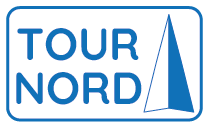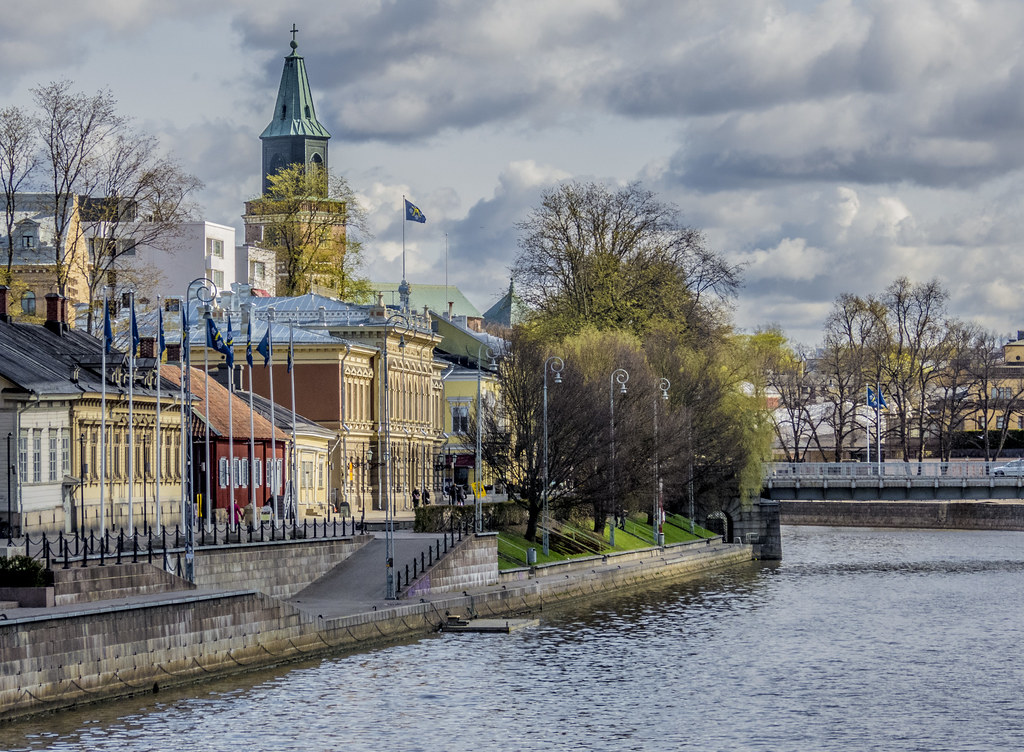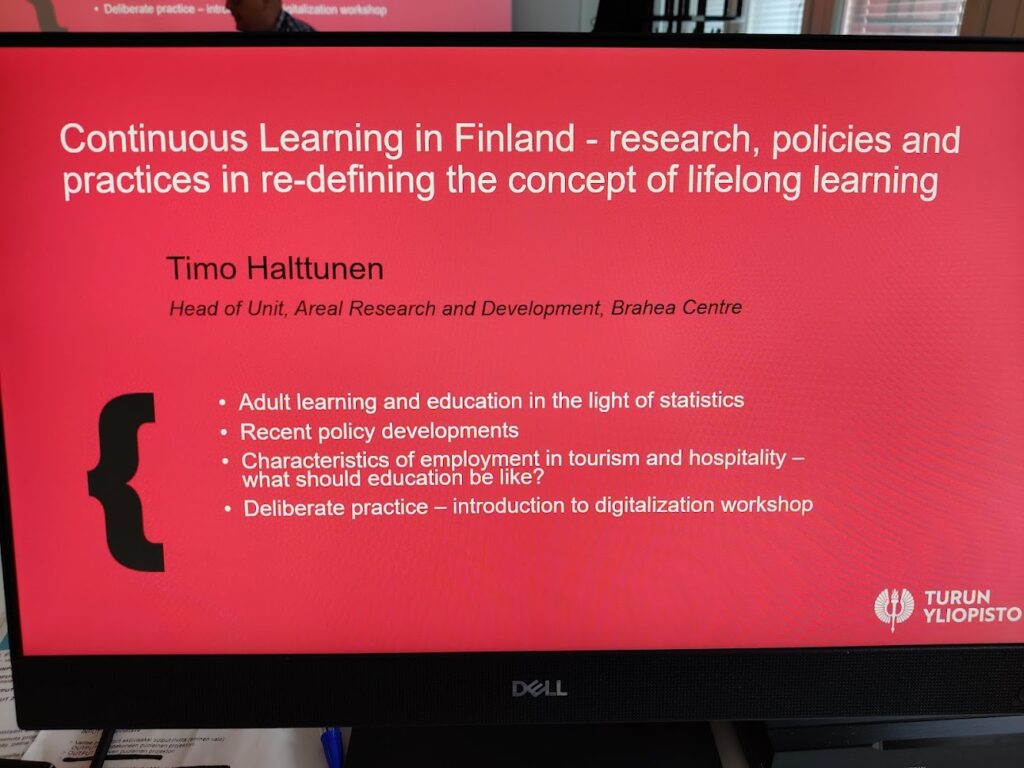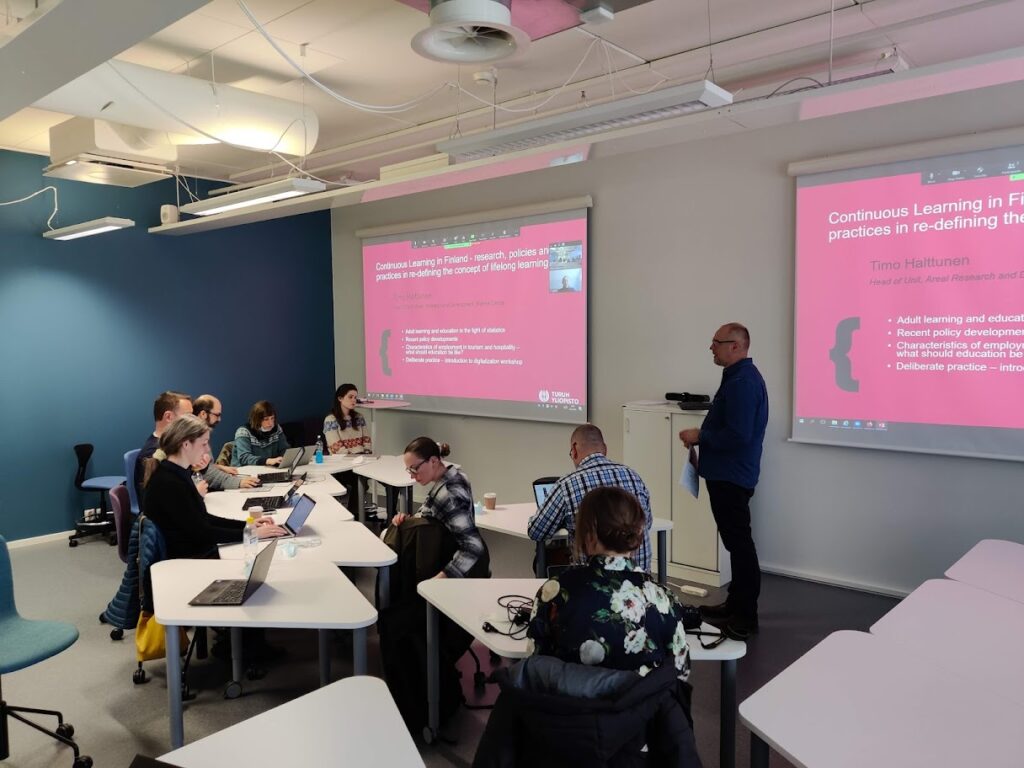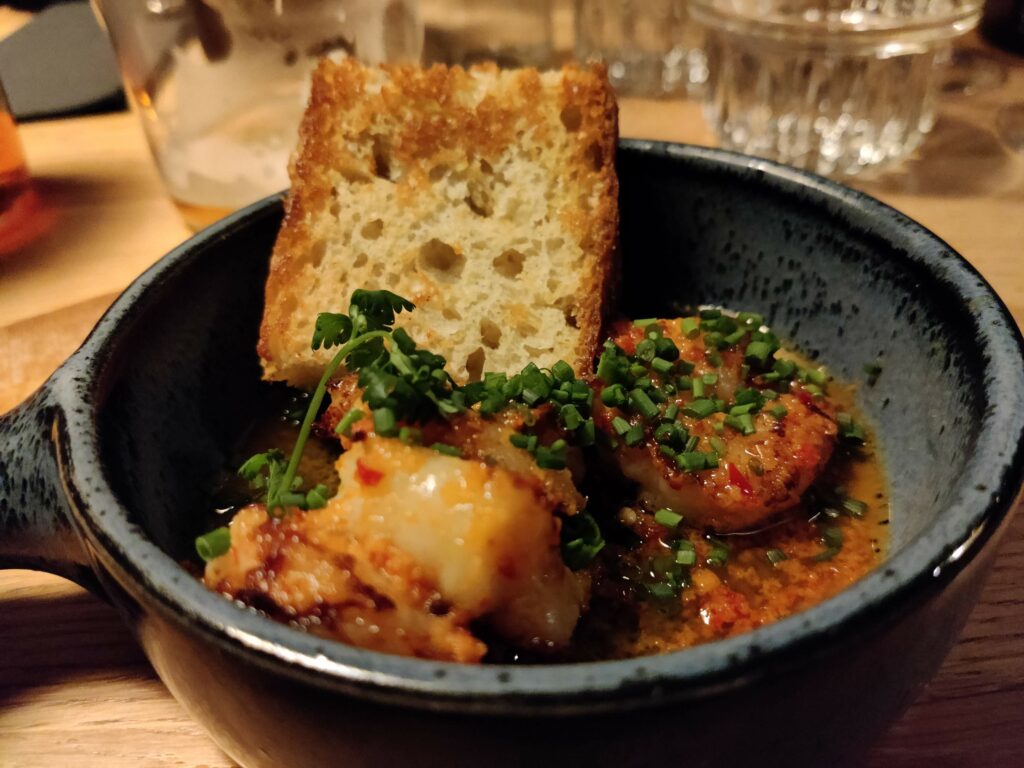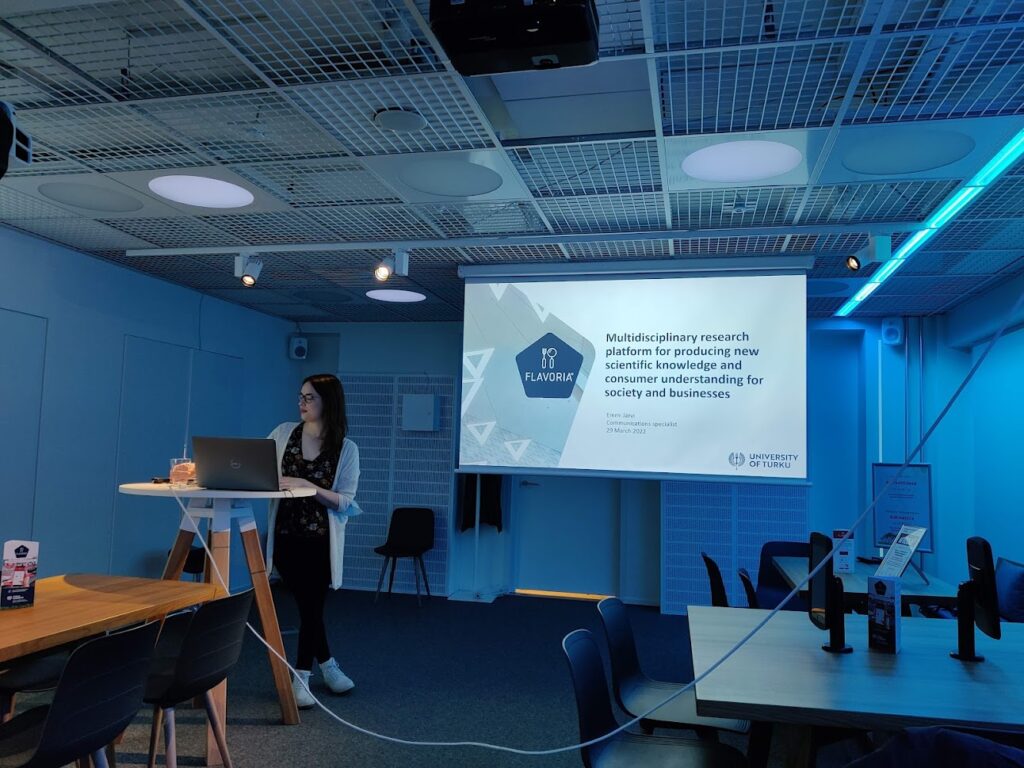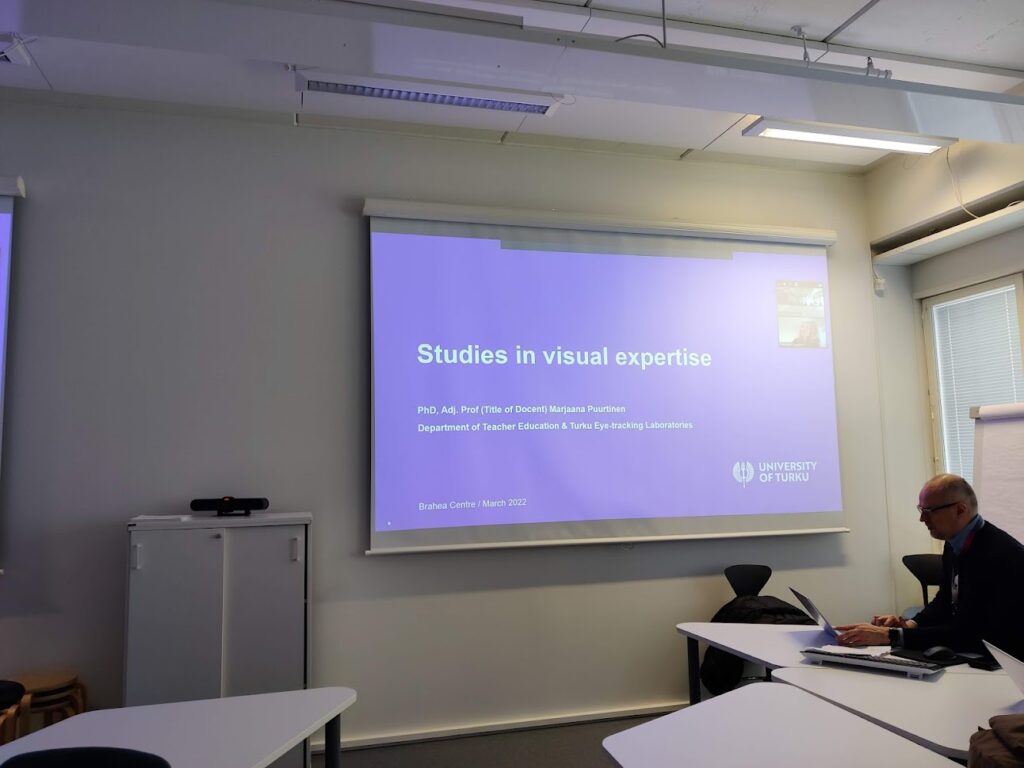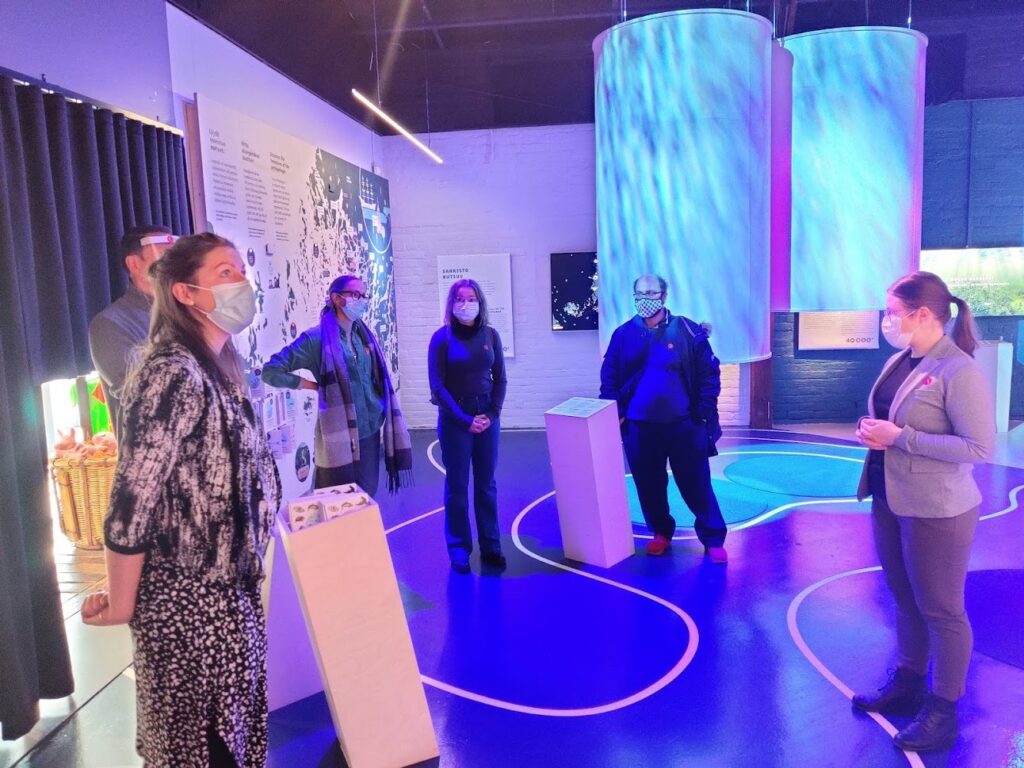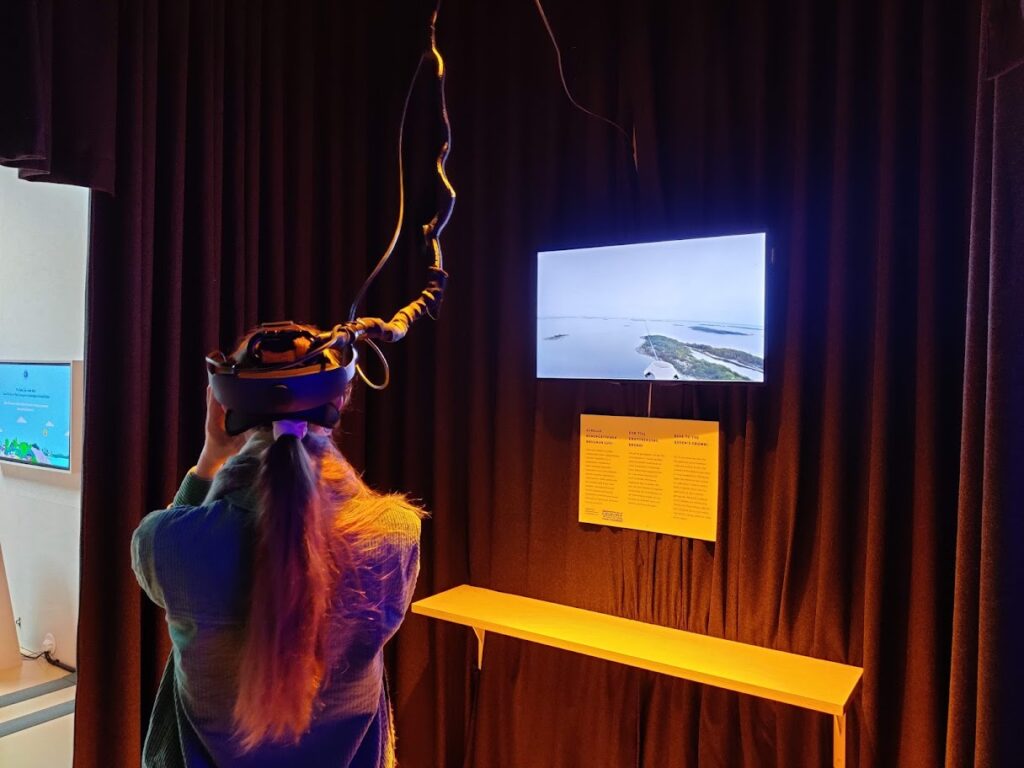Guest post by Timo Halttunen, Head of Unit at Brahea Centre, Areal Research and Development, at the University of Turku, Finland.
Lifelong learning is customary concept to many of us working in research, development and innovation. The idea of learning taking place at any given moment is a positive one, adding a sense of progress and hope to the narratives of competence development. To accompany this positive notion of learning extending from the early steps of childhood to those of the elderly, another concept has been introduced to describe the spread of learning: learning in education, at work and during the leisure time. Hence, the concept of lifewide learning draws our attention to the contextual characteristics and circumstances where learning happens. However, does learning happen that easily, and do people from all walks of life have equal opportunities for learning?
In this short article, I draw attention to the circumstances and conditions that affect participation in lifelong learning. My focus is in the tourism sector and the kind of jobs available in the sector.
What do the numbers say?
According to statistics, work in tourism is low-paid, occupied by women, working in short-term contracts. From the perspective of employers, employee turnover is a challenge: there is a constant need to recruit workers for the next season, as those who occupied those positions have found employment in other service sector jobs. The ideas of lifelong and lifewide learning seem to resonate poorly to these circumstances described above. In contrast to these challenges, tourism sector beholds also positive perspectives for employment. Tourism offers jobs for people with migrant background, and international workers. Some of the jobs do not require lengthy training and can be obtained by people with learning from experience.
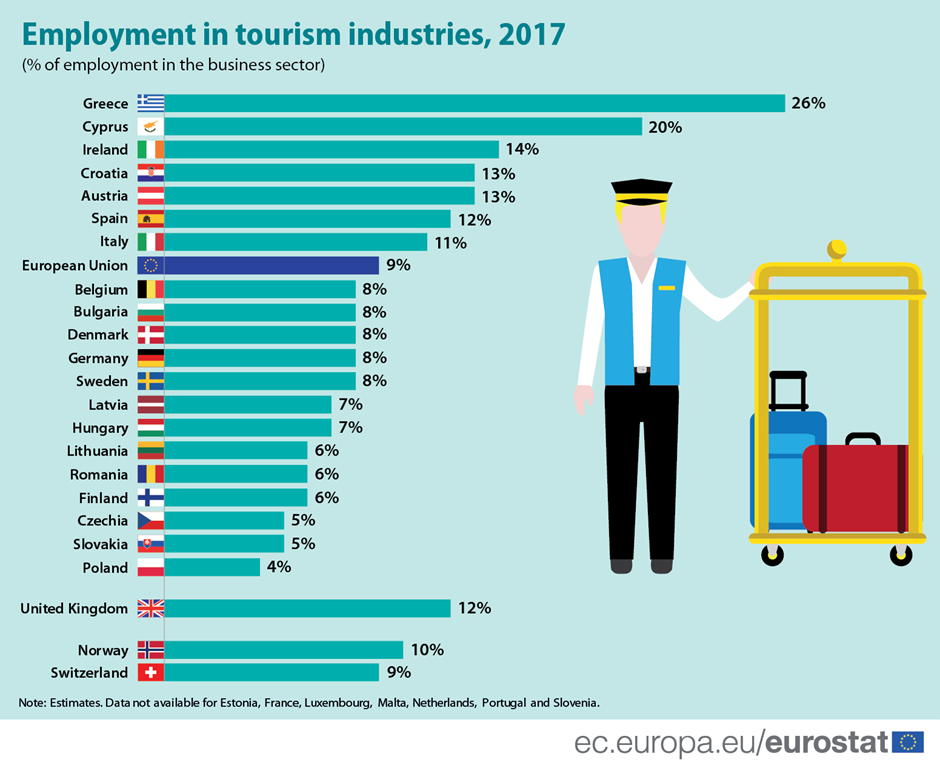
In the European Union, employment in tourism counts for 9 % of employment in the business sector. Respectively, in the Nordic countries, tourism forms 6-10 % of business sector jobs. As displayed in the statistics, Greece and Cyprus stand out with exceptionally high percentages (20-26%) of employment in tourism industries. In contrast, Czechia, Slovakia and Poland count only from 4 to 6 percentages.
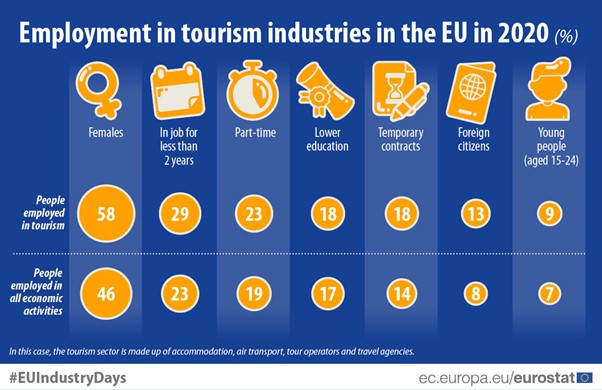
When looking at the kind of work available, we notice that in comparison to other service sector jobs work in tourism is defined by part-time work, temporary contracts and shorter average seniority. Hence, tourism gives opportunities for the young, those with lower education background, and for the foreign citizens. With this knowledge in mind, opportunities to attain education while working in tourism sector seem less compared to the kind of jobs with full time and long-term contracts. Education is an investment, and even Nordic countries offer free of charge education to their citizens, participation in education at a personal level comes with costs, and those are often related to not being able to work while studying, thus not being able to make the ends meet financially.
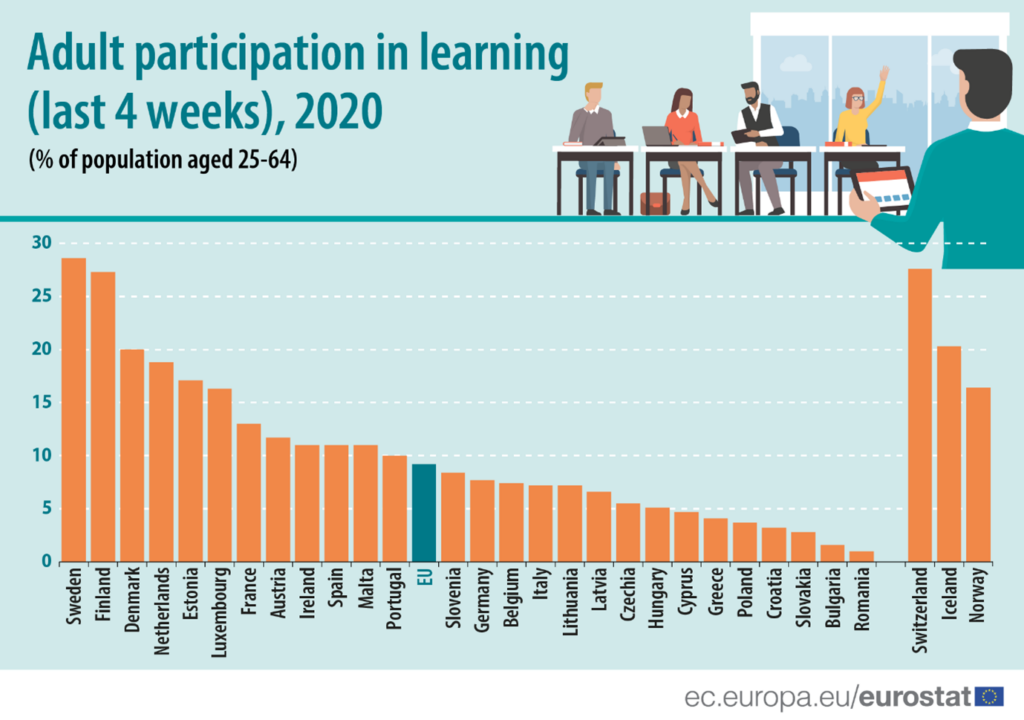
According to statistics, all Nordic countries have a high rate of participation in education when compared to the EU average. However, when looking deeper into the statistics of how people from different social categories participate in education, we find out that the low-skilled and part-time workers participate less in education than the high skilled and in full-time or permanent work.
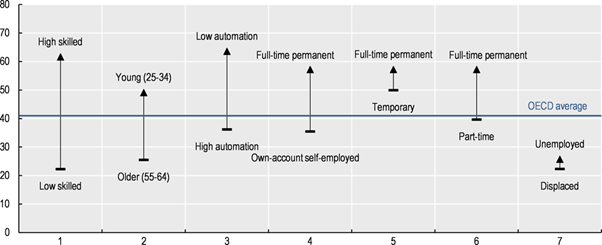
According to the OECD, workers with less attachment to the labour market have more trouble accessing education). At the same time, recent megatrends such as automatization and digitalization are predicted to cause rise in non-standard work and a reduction in job stability. (OECD, 2019).
Lifelong learning in tourism: Possibilities?
Coming back to the question of lifelong and lifewide learning, what can education providers do in making learning affordances available for people in tourism sector? Looking at the kind of education we provide, the new perspectives of micro credentials and digital open badges may hold a promise of change for the industry. Micro-credentials are shorter and smaller modules or courses of study, offering a more flexible and targeted way of professional development. By splitting studies into smaller modules, educators can make their offering more in line with the social conditions and circumstances of adult learners – in short, making it possible to participate in lifelong learning. Furthermore, with these bite-sized portions of training, workers in tourism sector may not only partake in education while at work, but also attain in education during the low season, preparing them for improved work conditions and contracts for the coming high season.
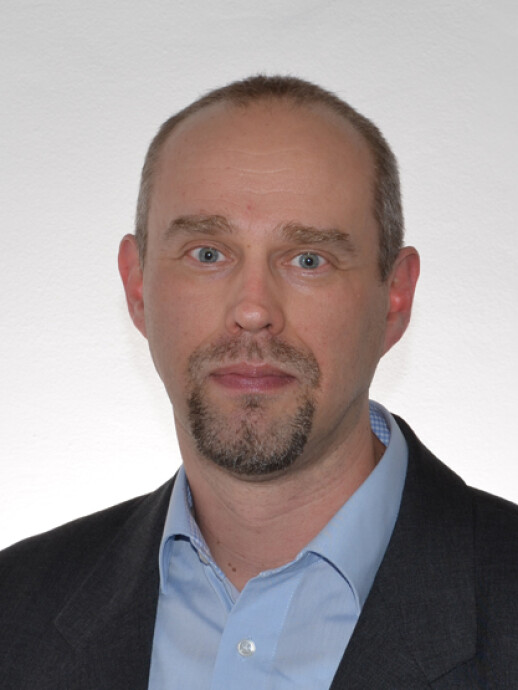
References
Eurostat (2020): European Union Labour force survey. https://ec.europa.eu/eurostat/web/products-eurostat-news/-/ddn-20210702-1. Retrieved 11 May 2022.
Eurostat (2022): The EU tourism labour market in 2020. https://ec.europa.eu/eurostat/web/products-eurostat-news/-/edn-20190306-1. Retrieved 11 May 2022.
Eurostat (2020): Tourism vital to employment in several Member states. https://ec.europa.eu/eurostat/web/products-eurostat-news/-/ddn-20200415-1. Retrieved 11 May 2022.
OECD (2019), OECD Employment Outlook 2019: The Future of Work, OECD Publishing, Paris, https://doi.org/10.1787/9ee00155-en.
